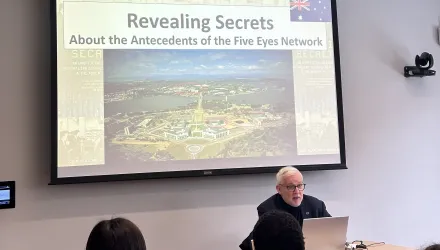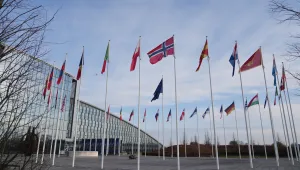Overview
"Philip Heymann has shown again in Terrorism, Freedom, and Security why he is one of the leading thinkers in the world on the subject of terrorism. In this brief but extraordinary book, he has laid out the old and the new, the problems and the pitfalls, the challenges and the opportunities. He has given us a sober and broad set of responses, but clearly pointed out that there are no silver bullets. And most importantly, he has reminded us that we must not forfeit our democratic values in defense of our democracy."
--Rand Beers, former Special Assistant to the President and Senior Director for Combating Terrorism, National Security Council, 2002-2003
"Terrorism, Freedom, and Security presents a powerful argument that not only explains why declaring a 'war' on terrorism was unwise but also presents a compelling case for relying on intelligence and law enforcement rather than military force and coercion. Phil Heymann is unequivocal in his defense of democratic values as the core of an effective American national policy for preventing terrorism. His book, grounded in knowledge of American policy as well as the experiences of other countries, is an essential foundation for the public debate we must have about the costs and benefits of alternative strategies for combating terrorism."
--Martha Crenshaw, Colin and Nancy Campbell Professor of Global Issues and Democratic Thought, Wesleyan University
"Professor Heymann's cool-headed and incisive analysis offers sane and sensible guidelines for coping with terrorism without losing the cherished principles of a democratic society. This book is must reading for decision makers and the general public alike."
--Ariel Merari, Head of the Political Violence Research Unit, Tel Aviv University
On September 11, 2001, the United States began to consider the terrorist threat in a new light. Terrorism was no longer something that happened in other countries on other continents but became a pressing domestic concern for the US government and American citizens. The nation suddenly faced a protracted struggle.
In Terrorism, Freedom, and Security, Philip Heymann continues the discussion of responses to terrorism that he began in his widely read Terrorism and America. He argues that diplomacy, intelligence, and international law should play a larger role than military action in our counterterrorism policy; instead of waging "war" against terrorism, the United States needs a broader range of policies. Heymann believes that many of the policies adopted since September 11 -- including trials before military tribunals, secret detentions, and the subcontracting of interrogation to countries where torture is routine -- are at odds with American political and legal traditions and create disturbing precedents. Americans should not be expected to accept apparently indefinite infringements on civil liberties and the abandonment of such constitutional principles as separation of powers and the rule of law. Heymann believes that the United States can guard against the continuing threat of terrorism while keeping its traditional democratic values in place.
Philip B. Heymann is James Barr Ames Professor of Law at the Harvard Law School. From his first job as clerk to US Supreme Court Justice John Harlan to his post as Deputy US Attorney General (1993-1994), Heymann has spent much of his career in government. A former Fulbright Scholar with degrees from Yale University, Harvard Law School, and the Sorbonne, he has been Assistant US Attorney General in charge of the criminal division (1978-1981) and Assistant to the Solicitor General in the Justice Department, Acting Administrator of the State Department's Bureau of Security and Consular Affairs, Deputy Assistant Secretary of State for the Bureau of International Organizations, and Executive Assistant to the Undersecretary of State. In addition, he was a former Associate Prosecutor and Consultant to the Watergate Special Force. He is the author of Terrorism, Freedom, and Security: Winning without War (MIT Press, 2003).
Heymann, Philip B.. “Terrorism, Freedom, and Security: Winning without War.” MIT Press, September 1, 2003



